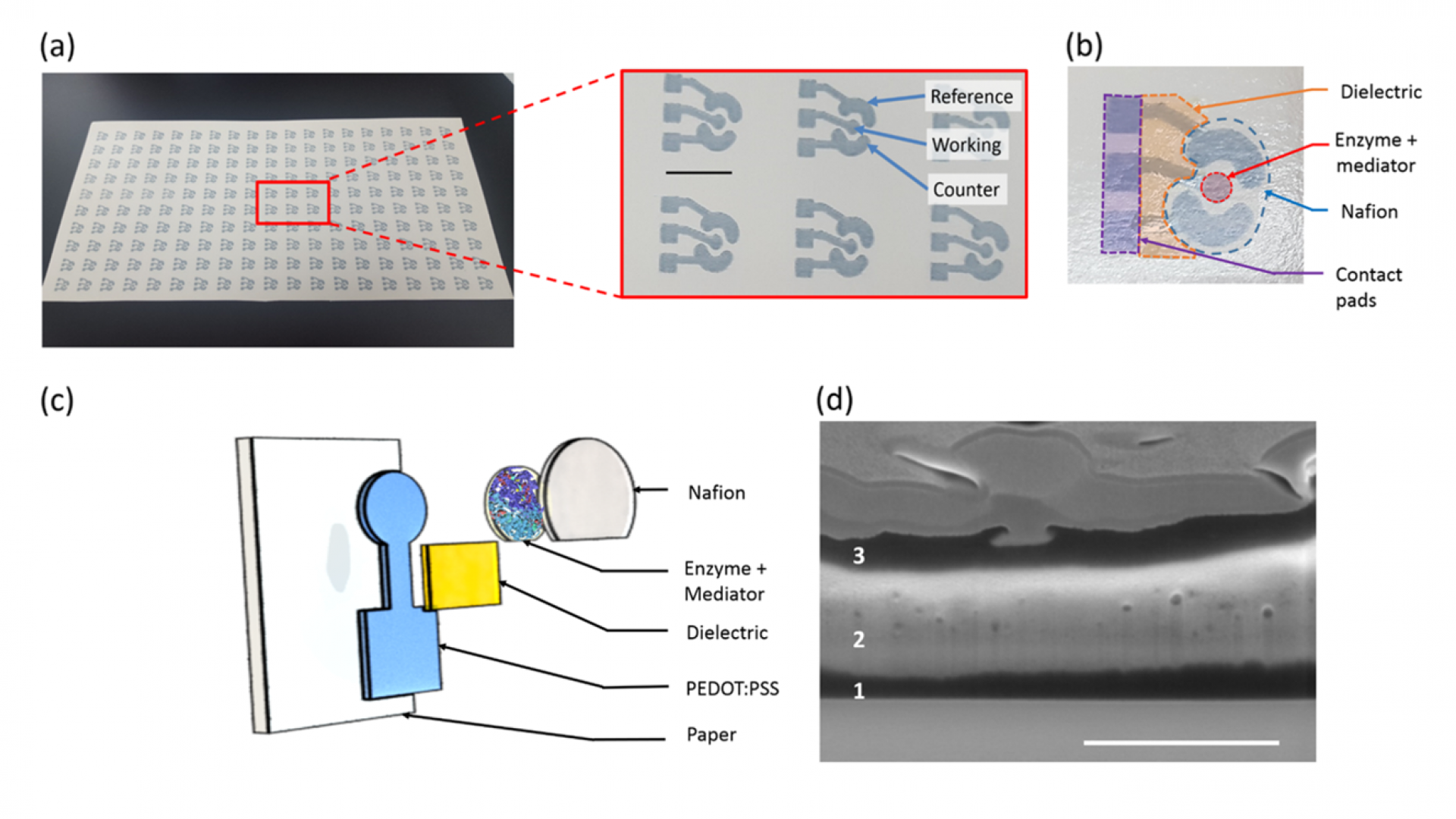Eloise Bihar, et al., "A fully Inkjet-printed Disposable Glucose Sensor on Paper". NPJ Flexible Electronics, 2(1), 2018, 1.
Inexpensive and easy-to-use diagnostic tools for fast health screening are imperative, especially in the developing world, where portability and affordability are a necessity. Accurate monitoring of metabolite levels can provide useful information regarding key metabolic activities of the body and detect the concomitant irregularities such as in the case of diabetes, a worldwide chronic disease. Today, the majority of daily glucose monitoring tools rely on piercing the skin to draw blood. The pain and discomfort associated with finger pricking have created a global need to develop non-invasive, portable glucose assays. In this work, we develop a disposable analytical device which can measure physiologically relevant glucose concentrations in human saliva based on enzymatic electrochemical detection. We use inkjet-printing technology for the rapid and low-cost deposition of all the components of this glucose sensor, from the electronics to the biorecognition elements, on commercially available paper substrates. The only electronic component of the sensor is the conducting polymer poly(3,4 ethylenedioxythiophene) doped with polystyrene sulfonate (PEDOT:PSS), while the biorecognition element comprises of the enzyme glucose oxidase coupled with an electron mediator. We demonstrate that one month after its fabrication and storage in air-free environment, the sensor maintains its function with only minor performance loss. This fully printed, all-polymer biosensor with its ease of fabrication, accuracy, sensitivity and compatibility with easy-to-obtain biofluids such as saliva aids in the development of next generation low-cost, non-invasive, eco-friendly, and disposable diagnostic tools.
